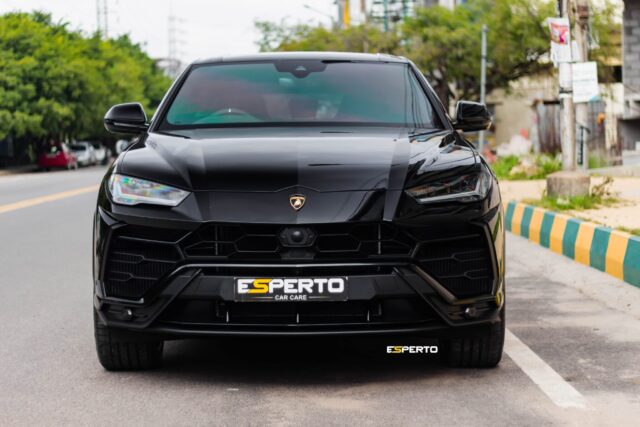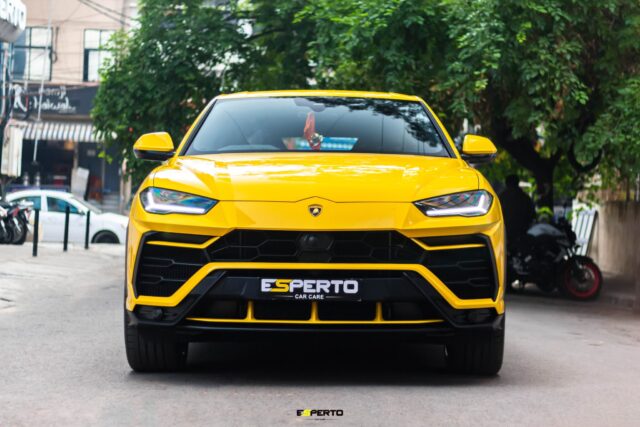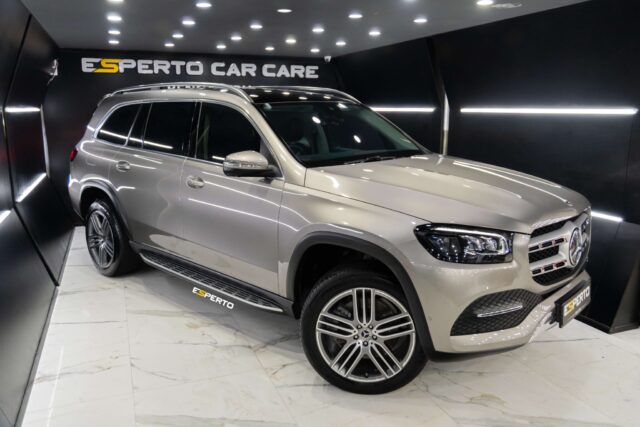Vinyl car wraps usually last between 5 to 7 years when crafted from high-quality material and installed by professionals. Durability is impacted by environmental conditions like UV exposure, pollutants, and temperature changes. Proper maintenance, including hand washing and shielding from harsh elements, can protract lifespan. Different finishes, such as gloss or matte, exhibit varied longevity. Recognizing early signs of wear, such as fading or bubbling, facilitates timely replacement. Gain insights into extending the lifespan and maximizing investment quality.
Key Takeaways
- High-quality vinyl wraps last 5 to 7 years with proper maintenance.
- Environmental conditions and UV exposure significantly affect the wrap’s lifespan.
- Regular cleaning and maintenance are crucial for extending wrap longevity.
- Installation quality and material type play a pivotal role in durability.
- Driving habits and parking conditions can influence the wrap’s lifespan.
How Long Does a Vinyl Car Wrap Take to Show Signs of Wear or Fading?
The longevity of a car wrap is contingent upon several factors, including the quality of the vinyl used and environmental exposure. If you’re planning to get a car wrap, choosing high-quality materials is key to ensuring it lasts. High-quality vinyl wraps, when properly maintained, typically exhibit a lifespan of 5 to 7 years before showing signs of wear or fading—depending on how long a vehicle is exposed to sunlight, moisture, and road debris.
To extend the life of your wrap and get the best results, it is essential to adhere to maintenance best practices such as regular cleaning, minimizing prolonged UV exposure, and avoiding harsh chemical cleaners. Always make sure you wash your car with a pH-neutral solution and a soft cloth to avoid damaging the wrap’s surface.
How Long Does a Car Wrap Typically Last on a Wrapped Vehicle?
Despite varying environmental conditions and maintenance practices, a typical vinyl car wrap is engineered to last between five to seven years.
The car wrap lifespan is influenced by factors such as the durability of car wraps, which hinges on the use of high-quality vinyl. This type of vehicle wrap can withstand the rigours of daily sun exposure and routine wear and tear.
Over time, the life of the wrap may outlast a traditional paint job if properly maintained. However, constant exposure to ultraviolet rays can accelerate fading, reducing the wrap can last effectively.
Regular cleaning and protective measures can mitigate these effects, optimizing the longevity and aesthetic appeal of the vinyl wrap and preserving its integrity throughout its intended lifespan.
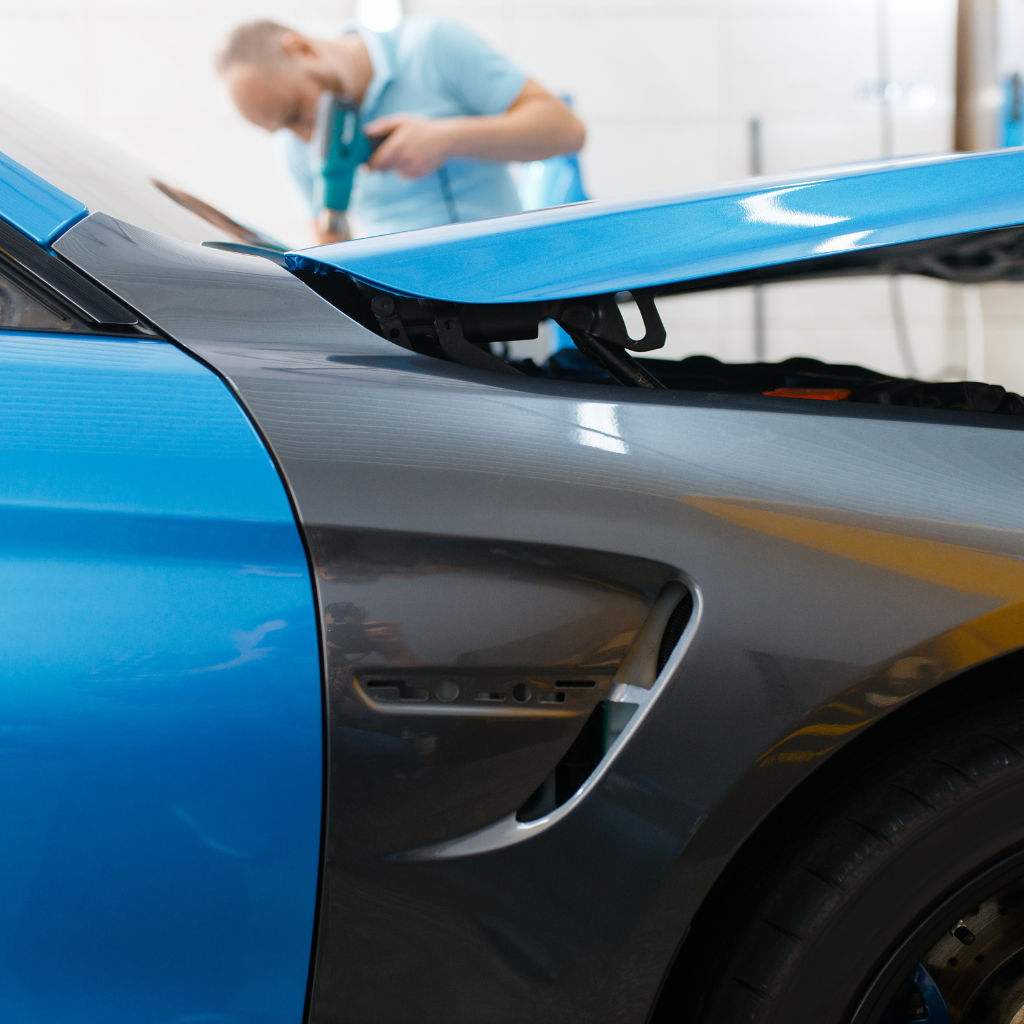
How Long Does a High-Quality Vinyl Vehicle Wrap Typically Last?
When evaluating the longevity of a vehicle wrap fabricated with high-quality vinyl, several critical variables must be considered.
The average lifespan of these high-quality vinyl wraps generally spans 5 to 7 years, dependent on factors like weather exposure and how well it’s maintained. The durability of the wrap is influenced by the quality of the vinyl material and the expertise of the installation.
- Environmental Exposure: UV rays and pollutants can accelerate wear.
- Installation Quality: Proper application guarantees a longer wrap lifespan.
- Maintenance Routine: Regular cleaning preserves the vinyl wrap last.
- Driving Habits: Frequent driving in harsh conditions may reduce longevity.
Ultimately, understanding these factors helps to gauge when it might be necessary to replace your wrap, guaranteeing the car wrap will last to its full potential.
How Can You Make Sure Your Vinyl Car Wrap Lasts as Long as Possible?
How exactly can one guarantee the longevity of a vinyl car wrap? First, prioritize the quality of the vinyl; high-grade materials guarantee the wrap lasts longer.
To protect the wrap, avoid automatic car washes that use harsh brushes, which can degrade the surface. Instead, wash your car by hand using mild soap and water.
Additionally, parking the vehicle in a garage shields it from UV rays, reducing the risk of fading. Regular maintenance checks can detect early signs of wear, extending the lifespan of your car wrap.
It is vital to confirm certified professionals apply the wrap to prevent premature peeling or bubbling.
What Affects the Durability of Your Car Wrap Over Time?
The longevity of a car wrap is heavily affected by environmental conditions like UV rays, temperature changes, and rainfall, which can accelerate degradation.
Furthermore, the precision and technique employed during installation are critical, as improper application can lead to premature failure through issues such as lifting or bubbling.
Additionally, the use of high-quality vinyl materials can enhance durability, providing superior resistance to external stressors and extending the functional lifespan of the wrap.
Do Environmental Factors Influence How Long a Vinyl Wrap Lasts?
Unquestionably, environmental factors considerably impact the longevity of a vinyl car wrap. These factors can degrade the vinyl, affecting the lifespan of a vehicle wrap. For ideal durability, it is essential to take into account:
- UV Exposure: Prolonged exposure to sunlight can damage the wrap material, leading to fading and reduced adhesion.
- Temperature Fluctuations: Extreme cold or heat can cause the vinyl to expand or contract, potentially causing cracks.
- Precipitation: Rain, snow, and humidity can gradually penetrate and degrade the vinyl, reducing the car wrap’s integrity.
- Parking Conditions: Parking your car in shaded or sheltered areas can mitigate environmental impacts, extending the durability of your wrap.
What Role Does Installation Play in the Lifespan of Your Car Wrap?
Proper installation fundamentally dictates the lifespan of a car wrap. When a vinyl wrap is applied, the precision with which the wrap adheres to the vehicle’s surface is paramount to its longevity.
The installation process must guarantee that all parts of the wrap, including the edges of your car wrap, are meticulously aligned and free from air bubbles or creases. If the wrap is installed correctly, it considerably contributes to the durability of your car wrap.
The quality of the wrap alone is insufficient; improper installation can undermine the entire application, causing premature lifting or peeling. Consequently, professional installation is critical in maximizing the lifespan of your wrap and maintaining the aesthetic and functional integrity of the vinyl wrap over time.
Can a High-Quality Vinyl Wrap Help Your Car Wrap Last Longer?
When evaluating the longevity of a car wrap, the quality of the vinyl material itself plays an indispensable role. High-quality vinyl guarantees that the vehicle’s wrap maintains its durability and lifespan.
Wrap finishes, whether gloss, matte, or satin, are more resilient when originating from superior materials. These finishes not only enhance aesthetics but also contribute to the wrap’s ability to last longer under various environmental conditions. Proper maintenance further extends this lifespan as it combats factors such as UV exposure and road debris.
Critical factors affecting car wrap durability include:
- Quality of the vinyl material: Superior composition guarantees resilience.
- Wrap finishes: High-quality finishes offer better protection.
- Maintenance routines: Regular care mitigates wear.
- Environmental exposure: Quality materials resist degradation.
Investing in high-quality vinyl is paramount for maximum vehicle wrap longevity.
How Do Different Vinyl Wrap Finishes Impact How Long a Car Wrap Lasts?
Vinyl wrap finishes such as chrome, gloss, satin, and matte each possess distinct characteristics that influence their longevity on a vehicle.
Gloss wraps, known for their UV resistance and superior adhesive properties, often outperform others regarding durability. To keep your wrap looking vibrant and smooth, it’s important to follow proper care routines—especially when taking your vehicle through a car wash, where harsh brushes may affect the surface.
In contrast, chrome wraps, despite their aesthetic appeal, may only last a few years due to their susceptibility to environmental stressors like heat and road debris. To ensure the wrap stays intact and maintains its finish, always opt for gentle cleaning methods and park in shaded areas whenever possible.
Do Chrome Wraps, Gloss Wraps, and Satin Wraps All Last the Same?
Surprisingly, the longevity of a car wrap can be greatly affected by the type of vinyl finish used, such as chrome, gloss, or satin. Each vinyl wrap finish presents unique characteristics that influence how long a car wrap lasts.
Chrome wraps, while visually striking, are more prone to environmental degradation. Conversely, gloss wraps offer a balance between aesthetics and durability, making them a popular choice. Satin wraps, with their understated appeal, offer a fair level of protection but need consistent upkeep to maintain their look.
The type of vinyl used considerably affects how long a wrap can last, anywhere between two to seven years, depending on how the vehicle is maintained.
Which Type of Wrap Finish Typically Lasts the Longest on a Vehicle?
In the domain of vehicle wrapping, the longevity of a wrap is greatly influenced by the type of finish applied, with gloss wraps typically outlasting other finishes like chrome and satin.
A quality car wrap, particularly with a gloss wrap finish, guarantees the extended life of a car wrap. Gloss vinyl wraps are engineered to provide superior UV resistance and durability on a wrapped vehicle, making them the preferred choice when longevity is paramount.
Matte wraps, while visually appealing, may not typically last as long due to their susceptibility to environmental factors.
The longevity of a vinyl wrap is contingent upon the material’s resistance to fading and wear, with gloss finishes consistently delivering the longest lifespan in the sphere of car wraps.
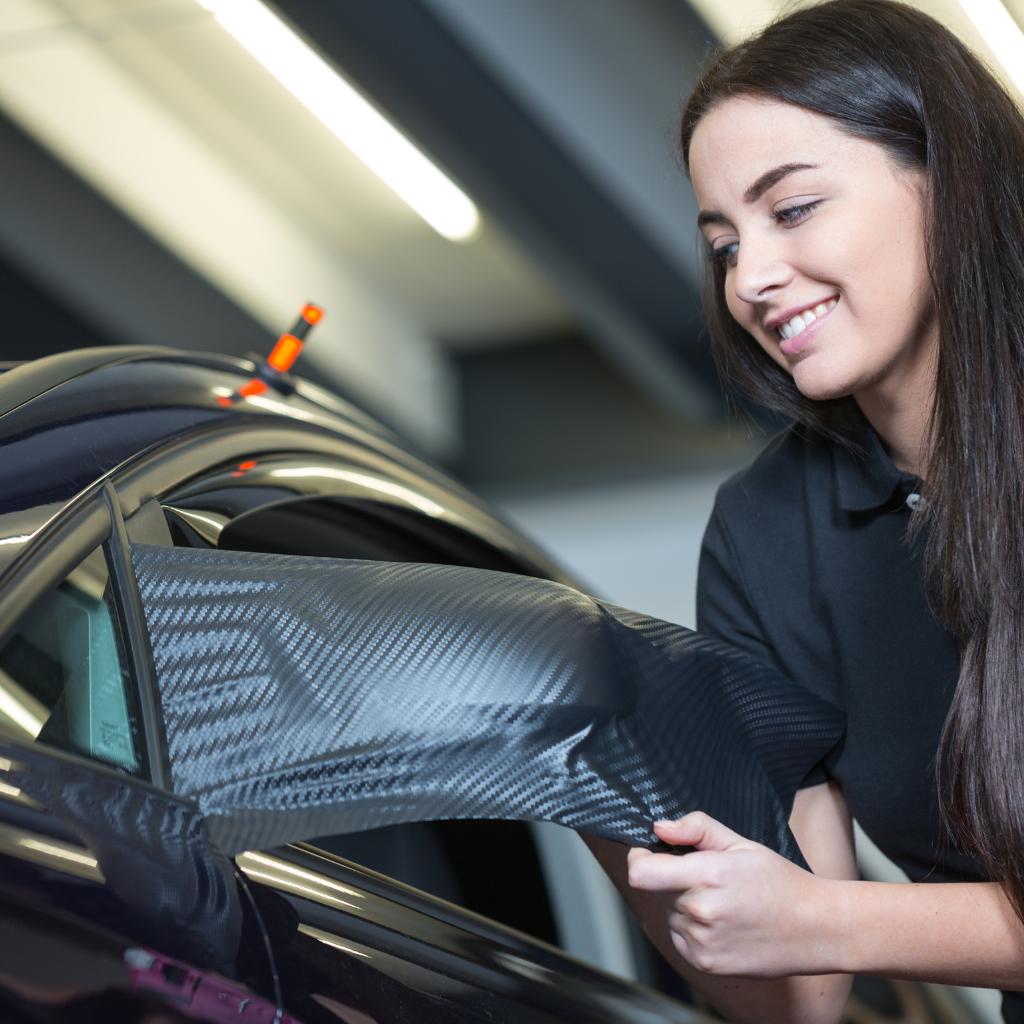
Is a Matte Wrap More Durable Than Gloss or Satin Wraps?
Durability is a critical consideration when evaluating the longevity of different vinyl wrap finishes. When comparing matte wrap, gloss wrap, and satin wrap, each offers unique attributes impacting how long they last on a vehicle surface.
A matte wrap is often perceived as more resistant to minor scratches and swirl marks, contributing to its durability. In contrast, gloss wraps may exhibit higher susceptibility to surface imperfections but boast vibrant finishes. Satin wraps provide a middle ground, balancing aesthetic appeal with resilience.
- Matte Wrap: Superior scratch resistance, longer-lasting surface
- Gloss Wrap: Enhanced visual appeal, potential vulnerability to marks
- Satin Wrap: Balanced durability and aesthetics
- Factors: UV exposure, environmental conditions, maintenance practices
Ultimately, the choice between these finishes should consider specific durability needs and aesthetic preferences.
What Can You Do to Extend the Lifespan of Your Car Wrap?
To optimize the longevity of a car wrap that will last, meticulous maintenance is paramount, including regular cleaning and protection from UV exposure.
Implementing a routine wash schedule—cleaning your car at least once every two weeks using a non-abrasive cleaner—can prevent dirt accumulation and preserve the wrap’s integrity. This approach ensures your wrap looks vibrant and extends how long your car wrap will maintain its finish.
Furthermore, employing strategic measures such as parking in shaded areas and utilizing UV protectant sprays will greatly enhance the wrap’s durability and appearance over time. If you’re planning to take your vehicle on long drives or display it in sunlight often, these protective steps are even more essential to keep the wrap in top condition.
How Should You Maintain a Vinyl Wrap to Make It Last as Long as Possible?
Why is proper maintenance vital for the longevity of a vinyl car wrap? Proper care guarantees that wraps typically last their maximum lifespan.
A well-maintained vinyl car wrap can last several years, enhancing the life of your car wrap. To maintain a vinyl wrap, it’s important to wash your car at least once a week, removing contaminants and debris. Regular cleaning prevents damage and guarantees the wrap lasts as long as possible, delaying the time to replace your wrap.
- Inspect the wrap frequently for signs of wear or damage.
- Use gentle cleaning solutions and soft cloths to avoid scratches.
- Park in shaded areas to shield the wrap from UV damage.
- Avoid harsh chemicals that might degrade the wrap’s adhesive properties.
Consistent maintenance prolongs a vinyl wrap to last effectively.
What Care Tips Help Preserve the Durability of Car Wraps?
Building on the importance of proper maintenance for vinyl wraps, there are specific care tips that greatly enhance their durability and extend lifespan.
Maintaining the integrity of a car wrap involves consistent actions to preserve its aesthetic appeal and functional longevity. Utilizing a pH-balanced car wash solution is essential to avoid chemical degradation of the vinyl wrap.
It’s vital to hand wash your vehicle, employing microfiber cloths to minimize abrasion. Avoid automatic car washes with harsh brushes that can compromise the wrap’s surface.
Parking the vehicle in shaded areas protects it from UV radiation, which can lead to fading and cracking.
Employing these care tips guarantees that the wrap lasts as long as possible, maintaining its vibrant appearance and protecting the underlying vehicle.
How Frequently Should You Wash a Car Wrap to Extend the Car Wrap Lifespan?
When determining the ideal washing frequency for a car wrap, several factors, such as environmental exposure, driving conditions, and wrap material, must be considered.
To extend the lifespan of a vinyl wrap on a vehicle, owners should wash the wrap surface regularly. A consistent wash routine can mitigate contaminants that may degrade the wrap.
- Frequency: Owners should frequently wash the car wrap, preferably every two weeks, to avoid dirt buildup and keep the wrap looking vibrant.
- Method: Utilize a gentle, non-abrasive washing technique to protect the wrap surface from scratches.
- Products: Use pH-balanced car wash soap designed for vinyl wraps to avoid chemical damage.
- Drying: Guarantee thorough drying post-wash to prevent water spots that can affect the car wrap’s long-term appearance.
When Should You Replace Your Wrap to Maintain Vehicle Appearance?
To ascertain the ideal time for replacing a vehicle wrap, professionals assess indicators such as fading, cracking, or peeling that compromise the visual integrity of the wrap.
The application of a new wrap not only revives the aesthetic appeal but also acts as a protective barrier, prolonging the underlying paint’s lifespan.
Consistent evaluation and timely replacement are pivotal in ensuring that the vehicle maintains its intended visual impact and brand representation.
How Do You Know When to Replace Your Wrap for a New One?
Determining the ideal time to replace a vehicle wrap hinges on several critical factors, including the wrap’s material quality, exposure to environmental elements, and the care regimen it has received.
A vinyl wrap, when meticulously maintained, can last anywhere from five to seven years. However, environmental factors such as UV exposure and pollutants may degrade the car wrap prematurely.
Consequently, vehicle owners planning to take their cars to regions with extreme conditions should monitor the wrap closely, as these elements can cause the wrap to deteriorate.
Indicators that it’s time for a new wrap include:
- Fading or discolouration: UV rays can cause the wrap to fade.
- Peeling edges: Edges lifting indicates adhesive failure.
- Bubbling: Trapped air or moisture undermines adhesion.
- Cracking: Indicates brittleness and age.
Can a New Wrap Installation Help Maintain the Look of Your Vehicle Wrap?
Opting for a new wrap installation can greatly enhance and maintain the aesthetic appeal of a vehicle, especially when the existing wrap shows signs of wear and tear.
A vinyl wrap is subject to environmental factors that can degrade its surface over time, affecting the car wrap’s longevity and appearance. Since car wrap varies based on material quality and usage, it’s important to inspect the vehicle regularly to prevent damage or deterioration. Wraps are a great way to personalize and protect your vehicle, but you should also determine how long the current wrap has been in place to decide when replacement is needed.
By replacing the old wrap with a new wrap, vehicle owners can restore the pristine look and guarantee the protective layer remains intact. Proper installation is essential to prevent issues such as bubbling or peeling, which can compromise the wrap’s effectiveness. The vehicle is regularly inspected, and regular wrap maintenance ensures that the finish remains durable. Regular inspection and timely replacement are recommended to maintain the vehicle’s desired look and extend the wrap’s lifespan.
This proactive approach guarantees the vehicle’s appearance remains vibrant and well-maintained.
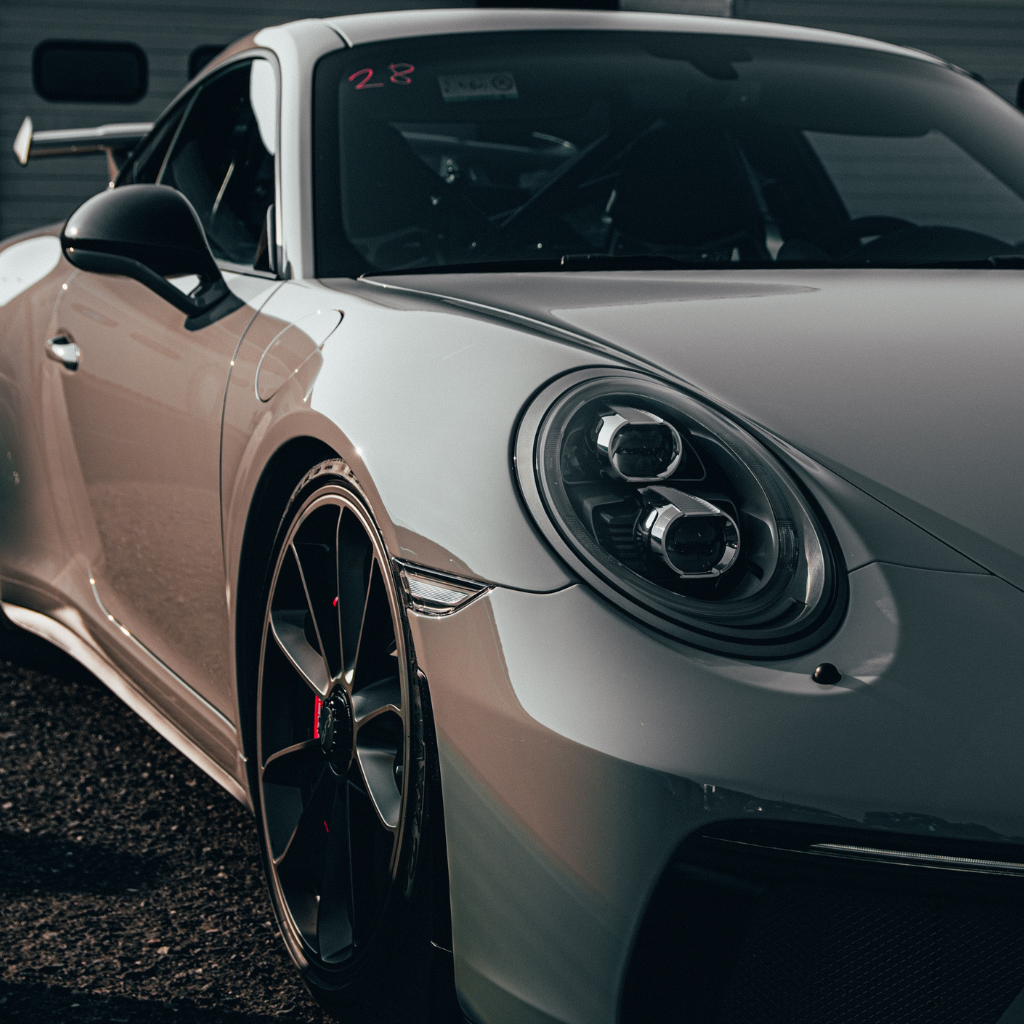
Conclusion
In conclusion, the longevity of a vinyl car wrap is influenced by various factors, including environmental exposure, maintenance practices, and the quality of materials used. Different finishes, such as gloss or matte, may also affect durability. To enhance lifespan, regular cleaning, protection from UV rays, and prompt repair of minor damages are crucial. Industry experts note that wraps can last anywhere from 3 to 7 years, depending on care and usage. Many car owners are surprised to discover how long a well-maintained wrap can retain its look and function, especially when the vehicle is kept in optimal conditions. Replacing wraps within this timeframe helps guarantee ideal appearance and protection.



